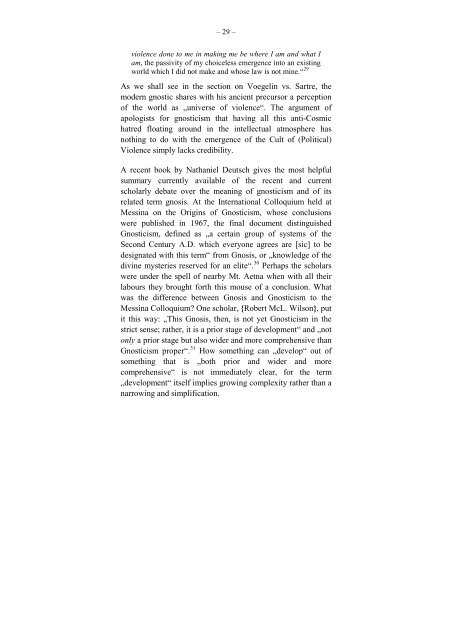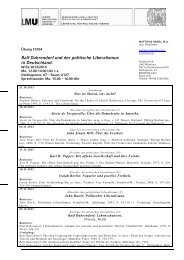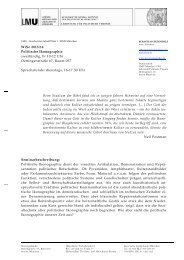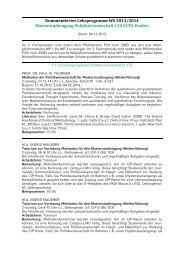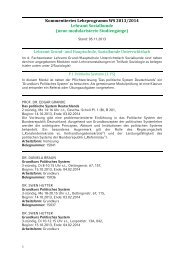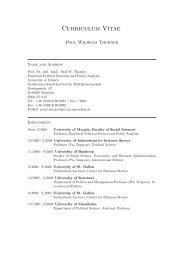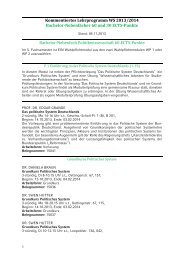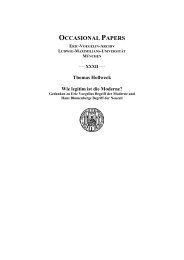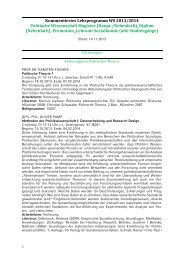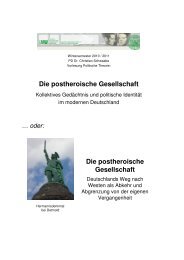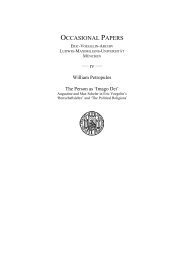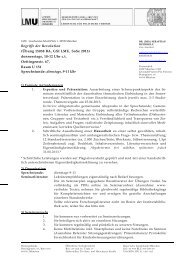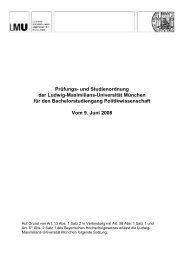Eric Voegelin.pdf - Geschwister-Scholl-Institut für Politikwissenschaft
Eric Voegelin.pdf - Geschwister-Scholl-Institut für Politikwissenschaft
Eric Voegelin.pdf - Geschwister-Scholl-Institut für Politikwissenschaft
You also want an ePaper? Increase the reach of your titles
YUMPU automatically turns print PDFs into web optimized ePapers that Google loves.
– 29 –<br />
violence done to me in making me be where I am and what I<br />
am, the passivity of my choiceless emergence into an existing<br />
world which I did not make and whose law is not mine.“ 29<br />
As we shall see in the section on <strong>Voegelin</strong> vs. Sartre, the<br />
modern gnostic shares with his ancient precursor a perception<br />
of the world as „universe of violence“. The argument of<br />
apologists for gnosticism that having all this anti-Cosmic<br />
hatred floating around in the intellectual atmosphere has<br />
nothing to do with the emergence of the Cult of (Political)<br />
Violence simply lacks credibility.<br />
A recent book by Nathaniel Deutsch gives the most helpful<br />
summary currently available of the recent and current<br />
scholarly debate over the meaning of gnosticism and of its<br />
related term gnosis. At the International Colloquium held at<br />
Messina on the Origins of Gnosticism, whose conclusions<br />
were published in 1967, the final document distinguished<br />
Gnosticism, defined as „a certain group of systems of the<br />
Second Century A.D. which everyone agrees are [sic] to be<br />
designated with this term“ from Gnosis, or „knowledge of the<br />
divine mysteries reserved for an elite“. 30 Perhaps the scholars<br />
were under the spell of nearby Mt. Aetna when with all their<br />
labours they brought forth this mouse of a conclusion. What<br />
was the difference between Gnosis and Gnosticism to the<br />
Messina Colloquium? One scholar, {Robert McL. Wilson}, put<br />
it this way: „This Gnosis, then, is not yet Gnosticism in the<br />
strict sense; rather, it is a prior stage of development“ and „not<br />
only a prior stage but also wider and more comprehensive than<br />
Gnosticism proper“. 31 How something can „develop“ out of<br />
something that is „both prior and wider and more<br />
comprehensive“ is not immediately clear, for the term<br />
„development“ itself implies growing complexity rather than a<br />
narrowing and simplification.


